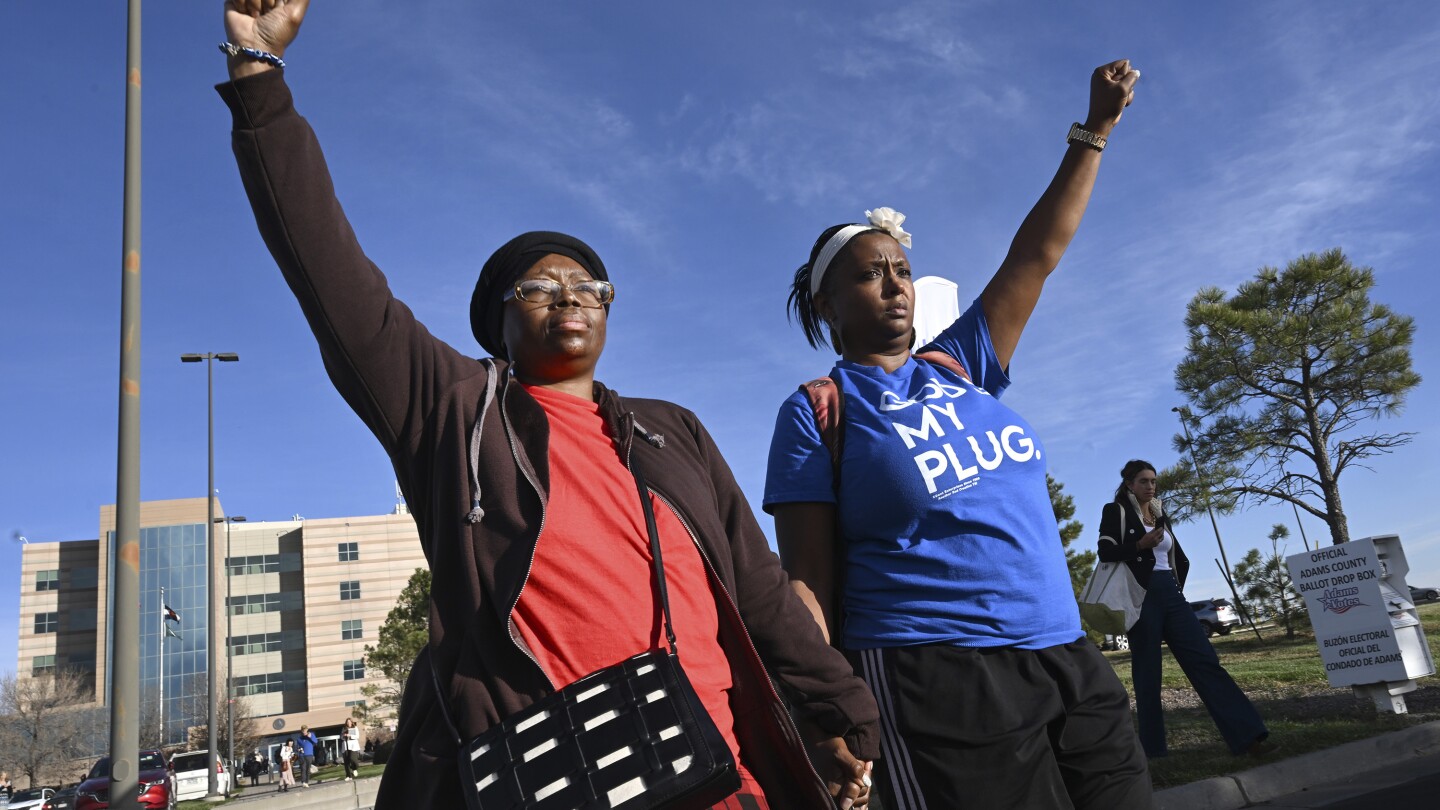BRIGHTON, Colo. (AP) — A jury on Monday acquitted a Denver-area police officer of manslaughter, following trial testimony that he put Elijah McClain in a neck hold before the Black man was injected with the powerful sedative ketamine by paramedics and died.
It was the second of three trials against first responders indicted by state prosecutors in the 23-year-old massage therapist’s death in August 2021.
The local district attorney initially declined to bring charges but the case was revived after the 2020 murder of George Floyd spurred social justice protests nationwide.
Prosecutors contended Officer Nathan Woodyard’s actions including the neck hold contributed to McClain’s death. But defense attorneys convinced the 12-person jury that the officer wasn’t responsible, arguing that Woodyard was not present during crucial moments in the confrontation with McClain.
The first trial ended in a split verdict with one Aurora officer found guilty and another acquitted.
McClain’s mother, Sheneen McClain, left the courthouse Monday with a fist raised in the air. A supporter who accompanied her called the verdict “pathetic” and a sign that the justice system was not changing.
Paramedics Jeremy Cooper and Lt. Peter Cichuniec with the Aurora fire department face prosecution in the final trial. Jury selection begins Nov. 17.
Here’s what you need to know about the criminal trials:
WHY WERE THE OFFICERS AND PARAMEDICS CHARGED?
Local prosecutors initially decided not to bring charges in McClain’s death largely because an initial autopsy didn’t determine exactly how he died.
Following the protests over Floyd’s death Democratic Gov. Jared Polis directed the state attorney general to re-investigate the McClain case. A grand jury indicted the three officers and two paramedics in 2021. Dr. Stephen Cina, a forensic pathologist who performed McClain’s autopsy, said he changed his findings to pin the blame on the sedative ketamine in 2021 after looking at body camera footage.
WHY DID POLICE STOP McCLAIN?
Woodyard was the first of three officers who approached McClain after a 17-year-old 911 caller said McClain, who was wearing earbuds and listening to music, seemed “sketchy” and was waving his arms as he walked home on the night of Aug. 24, 2019. McClain was often cold and wore a runner’s mask and jacket despite the warm weather, prosecutors said in the indictment.
The encounter quickly escalated. Prosecutors say Woodyard put his hands on McClain within eight seconds of getting out of his patrol car without introducing himself. McClain, seemingly caught off guard, tried to keep walking.
Then, after officer Randy Roedema said that McClain had reached for one of their guns, Woodyard put him in a neck hold, pressing against his carotid artery, which rendered him temporarily unconscious. Joyce said McClain didn’t try to get a gun, but defense attorney Megan Downing said Woodyard had to react quickly to protect everyone since officers did not have the luxury of hindsight to know whether McClain posed a threat.
The paramedics later injected McClain with an overdose of ketamine. He was pronounced dead three days later.
Woodyard had been charged with manslaughter and criminally negligent homicide.
Roedema was convicted earlier this month of the least serious charges he faced — negligent homicide and third-degree assault. He faces a sentence of anywhere from probation to prison time. Rosenblatt was acquitted.
WHAT DO THE FIRST TWO TRIALS MEAN FOR THE PARAMEDICS?
The actions of Cooper and Cichuniec loomed over the first two trials. They’re charged with manslaughter, negligent homicide and several counts each of assault — all felonies.
Defense attorneys for the officers repeatedly said it was the ketamine injection — not their clients — that caused McClain’s death. In Woodyard’s case, the defense brought in a paid expert witness who has also worked for the prosecution in the paramedic’s case. Dr. Nadia Iovettz-Tereshchenko, an emergency room doctor who has worked as a paramedic, said Cooper and Cichuniec did not follow their training protocols in caring for McClain.
“There are people guilty of killing Elijah McClain but they are not here today,” defense attorney Andrew Ho said during closing arguments in Woodyard’s case. He added, referring to the paramedics, that it was “decided to give him an overdose of 500 milligrams of ketamine despite being explicitly trained not to do so.”
Prosecution experts also said the ketamine was the ultimate cause of death after the officer’s violent stop of McClain set in motion events that led to and contributed to his killing.
A use of force expert who has been tracking the McClain case said it was unusual for medical professionals to be brought to trial for the death of a person in police custody.
“When paramedics show up at a scene they have to make fast decisions, obviously, and they base their decisions based on what the officer are telling them, and then apply what they believe is the proper course of treatment,” said Ed Obayashi, an attorney and use of force training adviser who spent more than two decades in law enforcement.
___
Brown reported from Billings, Montana.

